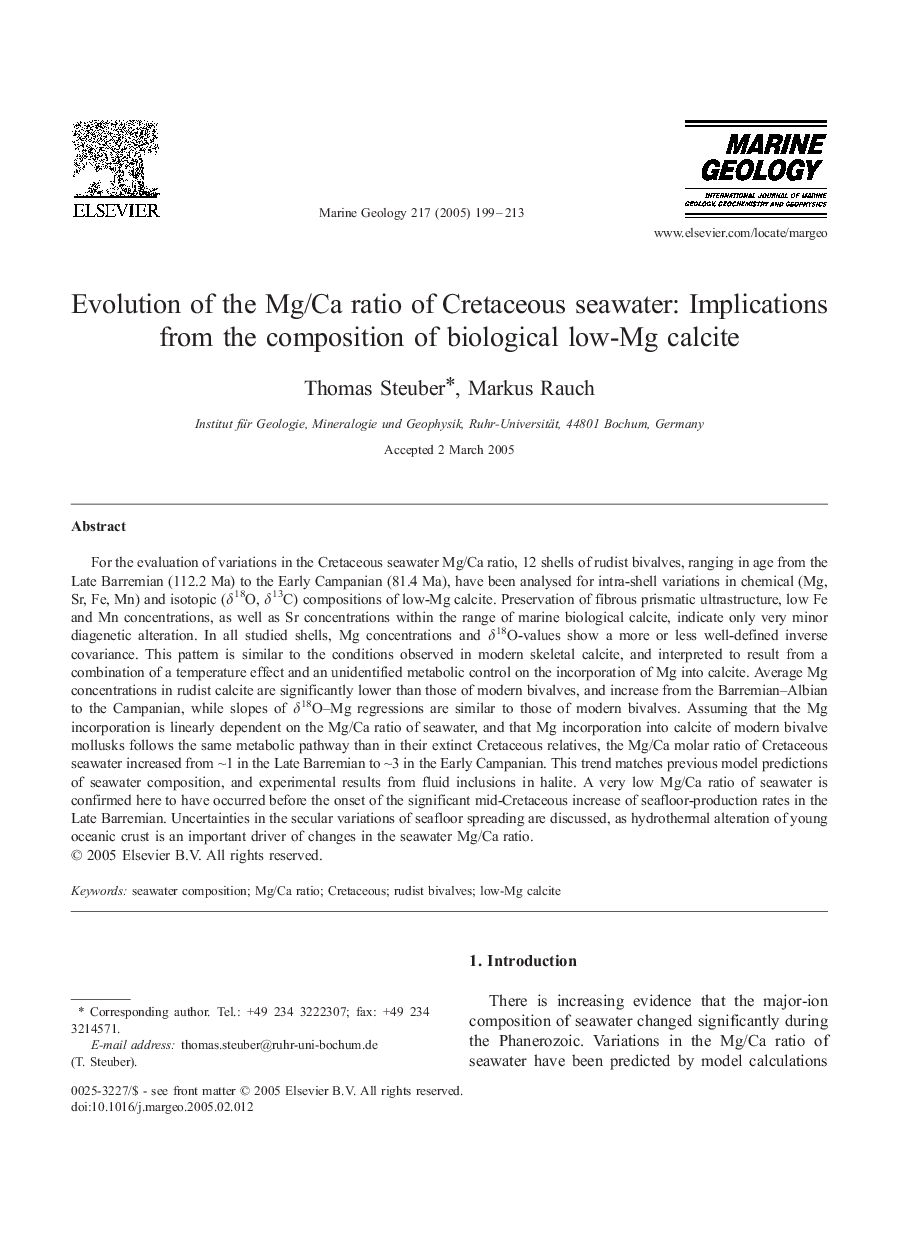| Article ID | Journal | Published Year | Pages | File Type |
|---|---|---|---|---|
| 9532495 | Marine Geology | 2005 | 15 Pages |
Abstract
For the evaluation of variations in the Cretaceous seawater Mg/Ca ratio, 12 shells of rudist bivalves, ranging in age from the Late Barremian (112.2 Ma) to the Early Campanian (81.4 Ma), have been analysed for intra-shell variations in chemical (Mg, Sr, Fe, Mn) and isotopic (δ18O, δ13C) compositions of low-Mg calcite. Preservation of fibrous prismatic ultrastructure, low Fe and Mn concentrations, as well as Sr concentrations within the range of marine biological calcite, indicate only very minor diagenetic alteration. In all studied shells, Mg concentrations and δ18O-values show a more or less well-defined inverse covariance. This pattern is similar to the conditions observed in modern skeletal calcite, and interpreted to result from a combination of a temperature effect and an unidentified metabolic control on the incorporation of Mg into calcite. Average Mg concentrations in rudist calcite are significantly lower than those of modern bivalves, and increase from the Barremian-Albian to the Campanian, while slopes of δ18O-Mg regressions are similar to those of modern bivalves. Assuming that the Mg incorporation is linearly dependent on the Mg/Ca ratio of seawater, and that Mg incorporation into calcite of modern bivalve mollusks follows the same metabolic pathway than in their extinct Cretaceous relatives, the Mg/Ca molar ratio of Cretaceous seawater increased from â¼1 in the Late Barremian to â¼3 in the Early Campanian. This trend matches previous model predictions of seawater composition, and experimental results from fluid inclusions in halite. A very low Mg/Ca ratio of seawater is confirmed here to have occurred before the onset of the significant mid-Cretaceous increase of seafloor-production rates in the Late Barremian. Uncertainties in the secular variations of seafloor spreading are discussed, as hydrothermal alteration of young oceanic crust is an important driver of changes in the seawater Mg/Ca ratio.
Related Topics
Physical Sciences and Engineering
Earth and Planetary Sciences
Geochemistry and Petrology
Authors
Thomas Steuber, Markus Rauch,
